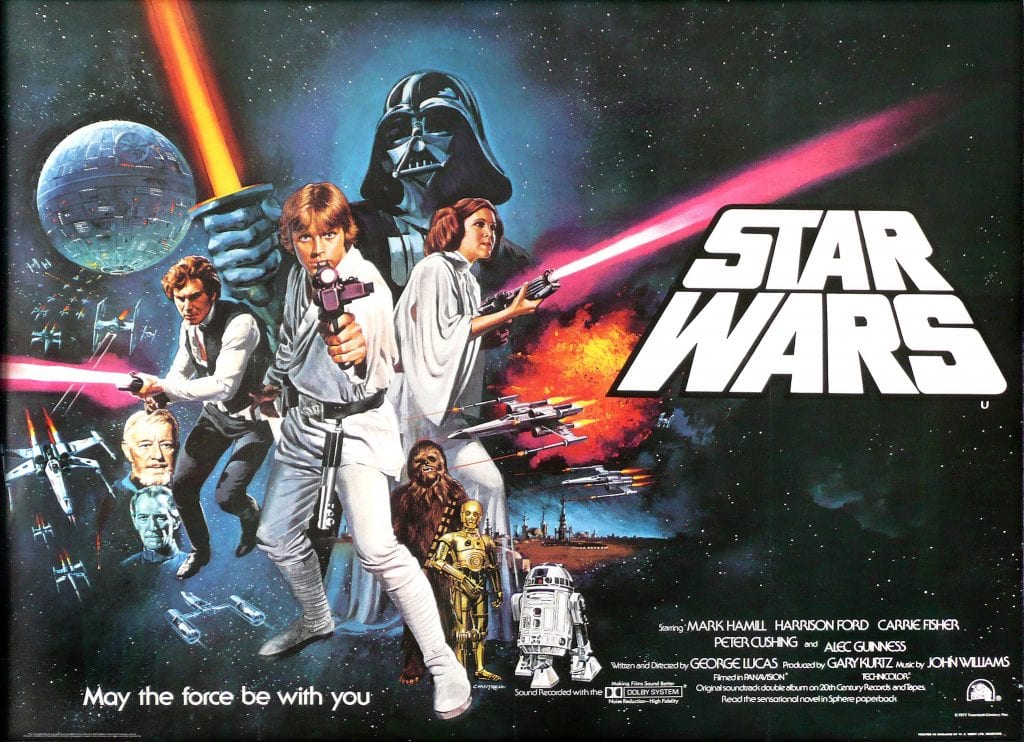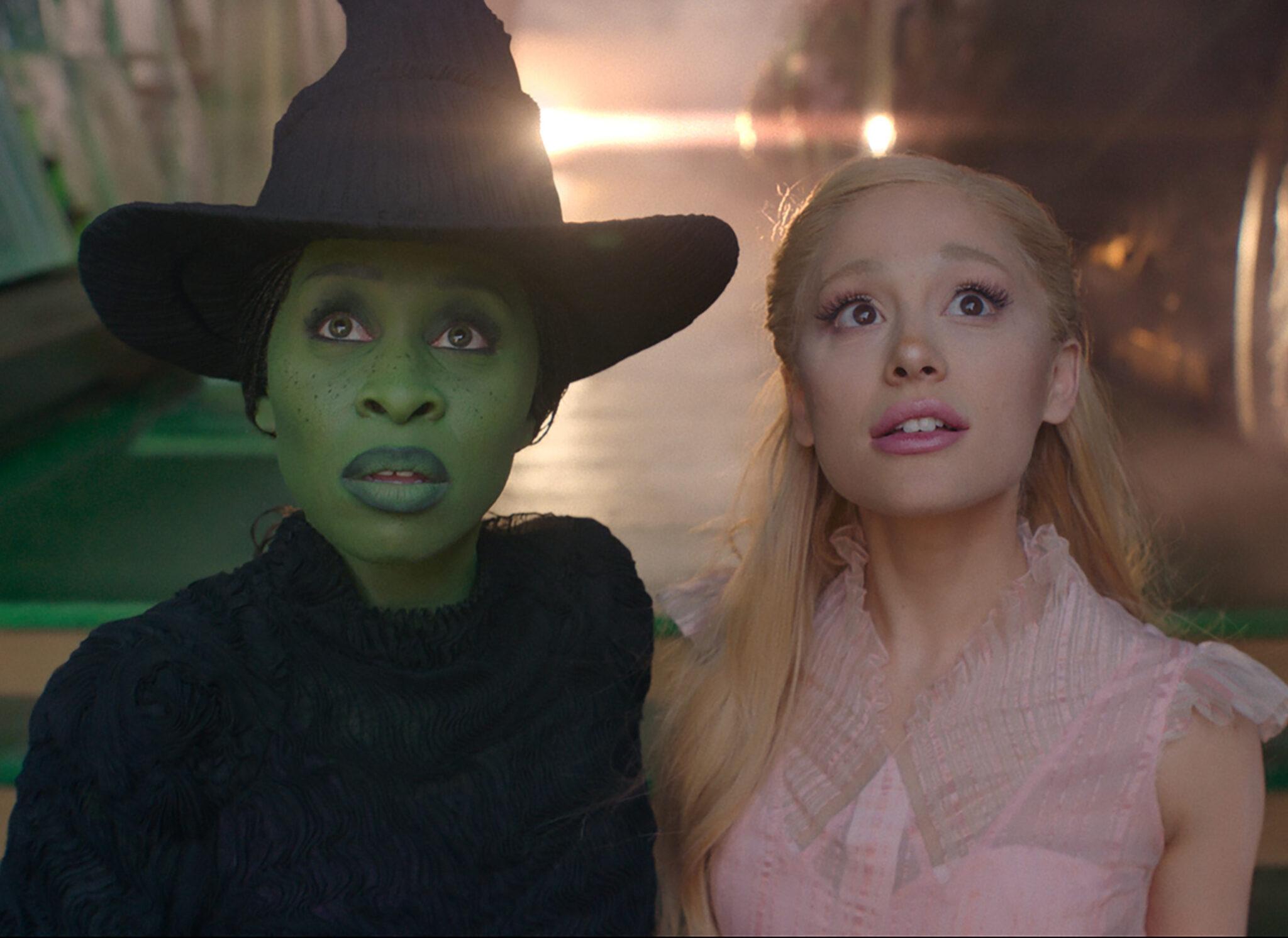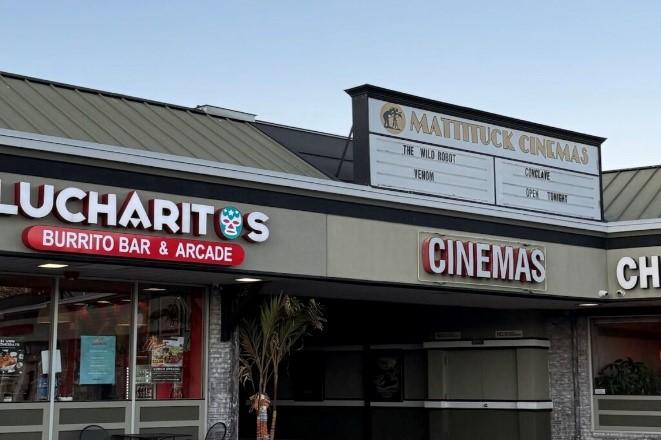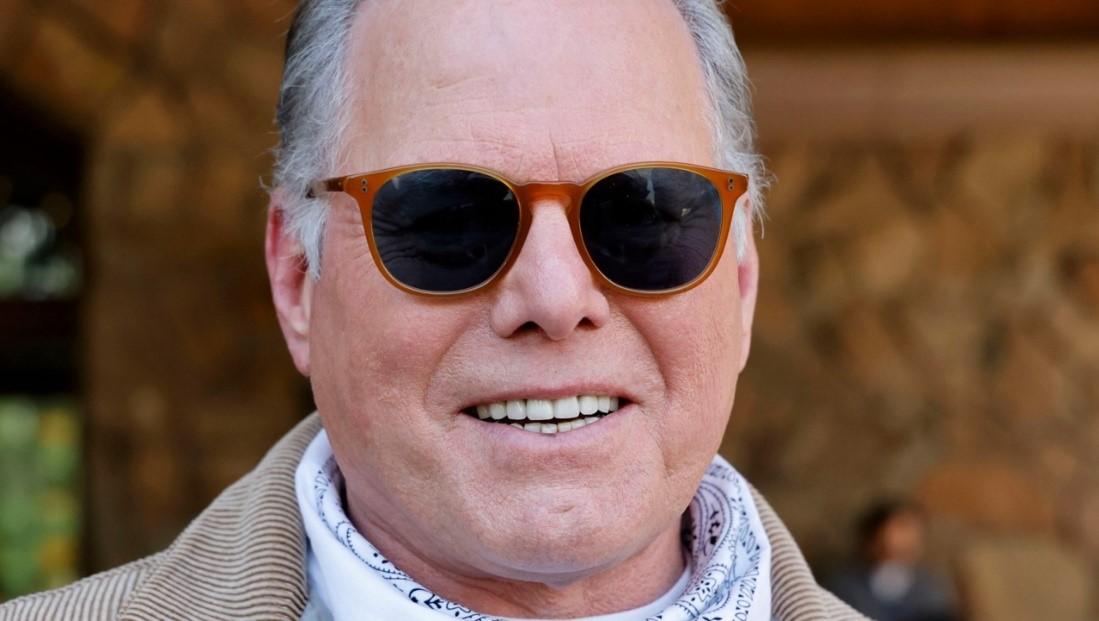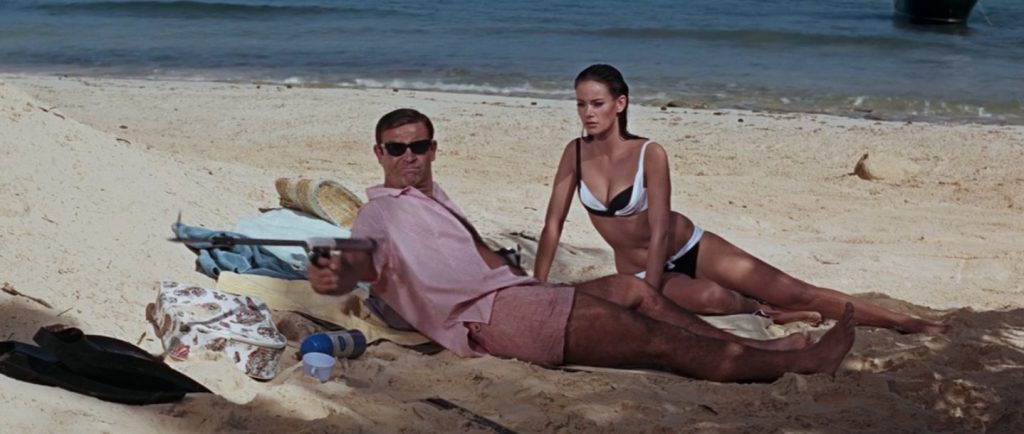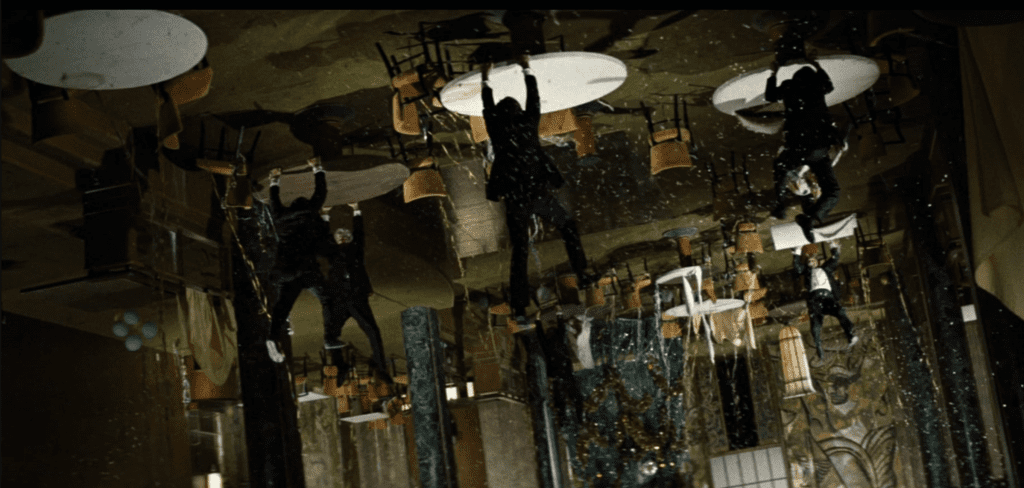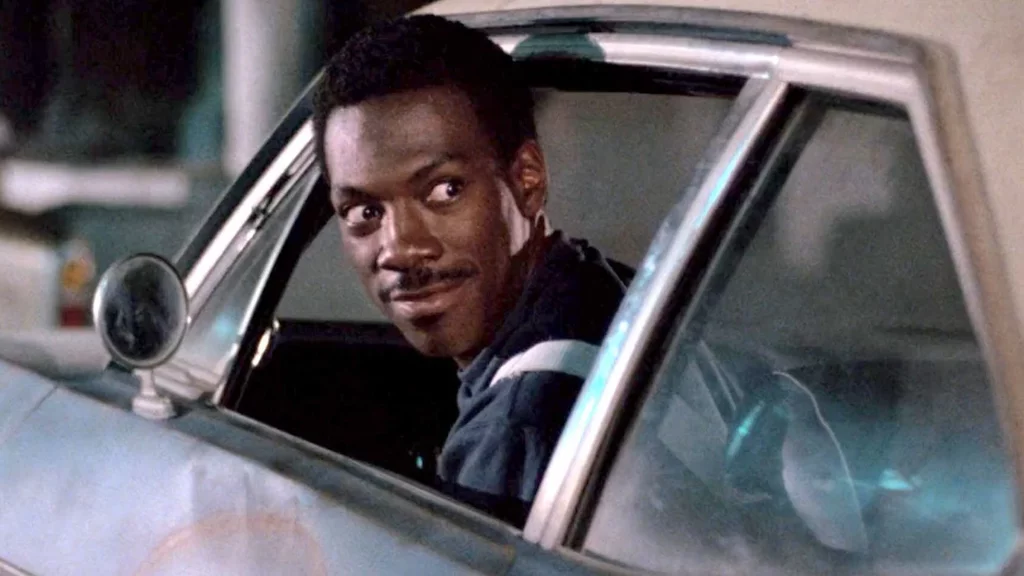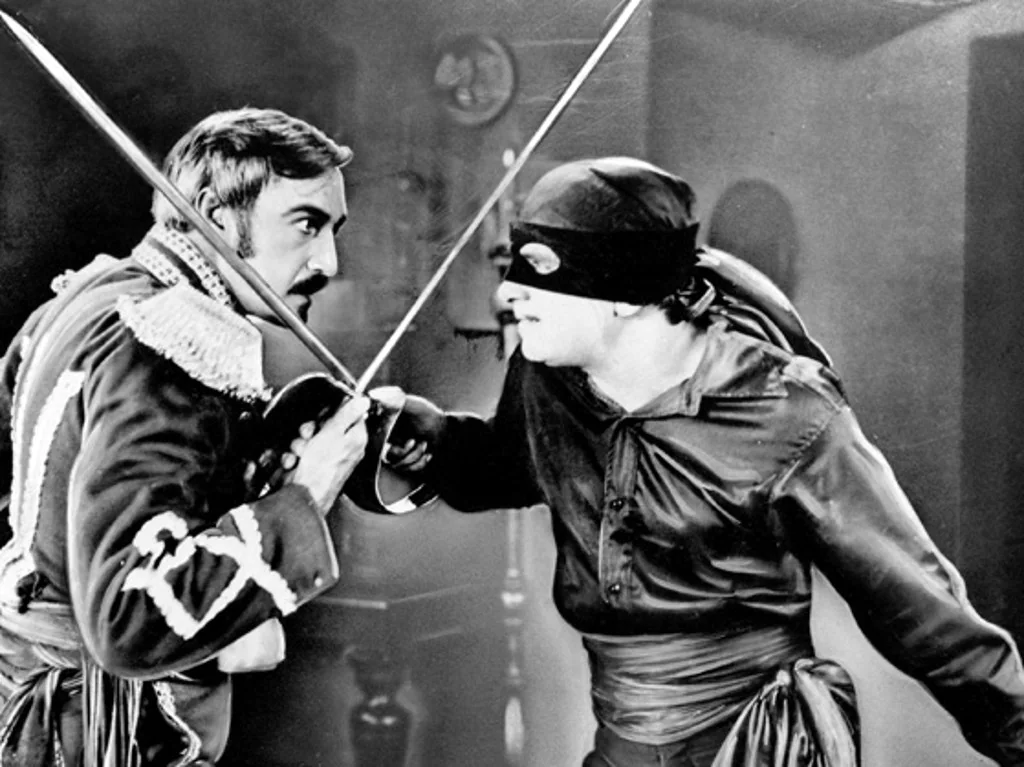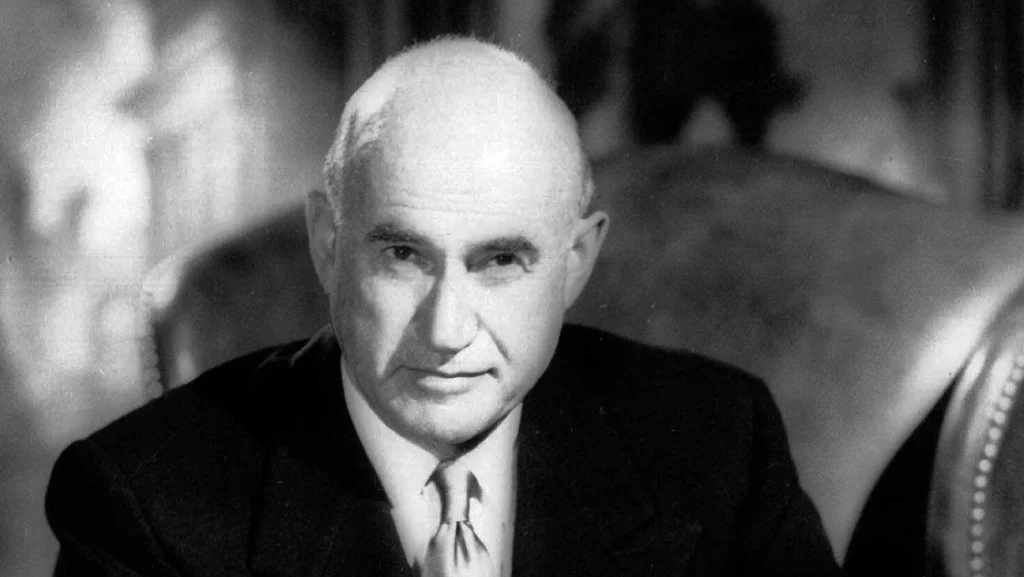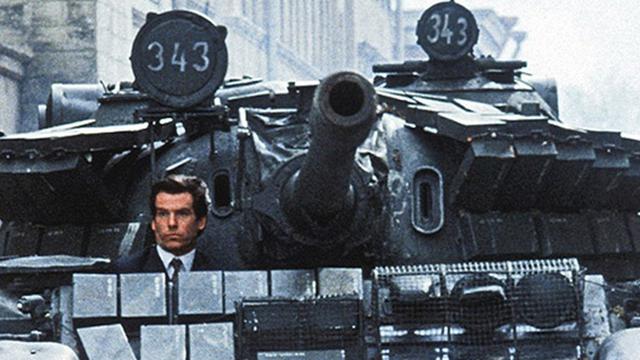When Star Wars opened on May 25, 1977, no one but Steven Spielberg thought it would be a hit. George Lucas had been turned down by Universal, United Artists, and Disney before pitching 20th Century Fox his sci-fi epic inspired by 1930’s serials like Flash Gordon and Buck Rogers, the 1966 TV series Star Trek and Frank Herbert’s 1965 novel Dune. Fox creative affairs chief Alan Ladd, Jr. greenlighted SW, but Fox’s distribution arm never considered it a likely hit. Fox marketers wanted to change the title because moviegoers might think Star Wars was about the Vietnam War or, perhaps, superstars Elizabeth Taylor and Richard Burton’s divorce.
When Lucas screened a rough cut for some director pals, they weren’t impressed. Brian De Palma reportedly called it the “worst movie” ever made. Spielberg, however, predicted SW would be “the biggest movie of all time.” Lucas thought SW was doomed and skipped its premiere to vacation with Spielberg in Hawaii where they heard SW was a box office phenomenon and then came up with a new project to do together — Raiders of the Lost Ark (1981), the first Indiana Jones blockbuster.
Exhibitors were reluctant to book SW, thinking only kids and sci-fi buffs would buy tickets, so it opened at just 32 theatres. Two days later, it was in 43 theatres and a week later in 157. It peaked in mid-August at 1,096, a very wide run then. Produced for $11 million, its original release did $461 million domestically and $196 million abroad – huge numbers at the time. Fortunately for Lucas, after doing a modest deal with Fox for $175,000 in fees, he gave up $500,000 in additional compensation and asked for 40 percent of SW merchandising rights Fox agreed because it’s 1967 merchandising driven musical Doctor Dolittle had been a disaster. Lucas later obtained all SW merchandising rights – which brought him $32 billion-plus over 40 years – and used them to build his Lucasfilm empire and control the SW franchise. In October 2012, Disney bought Lucasfilm for $4.1 billion in cash and stock.
In 1977, before SW opened, Lucas visited Spielberg on his Close Encounters of the Third Kind set. Lucas thought Encounters would outgross SW, but Spielberg felt SW would do best. Lucas proposed an agreement where they’d pay each other 2 1/2 percent of their film’s profits. Encounters did about $307 million worldwide, but SW triumphed. Spielberg and Lucas reportedly are still trading profit participation payments from their 1977 box office bet.

Roger Ebert: “It’s just a never-ending visual delight. It’s a movie that will last for years.”
Gene Siskel: “The only thing that I’m worried about is that it’s so successful, so mindless fun, that I hope Hollywood doesn’t forget that there are people that like to see serious pictures too.”

